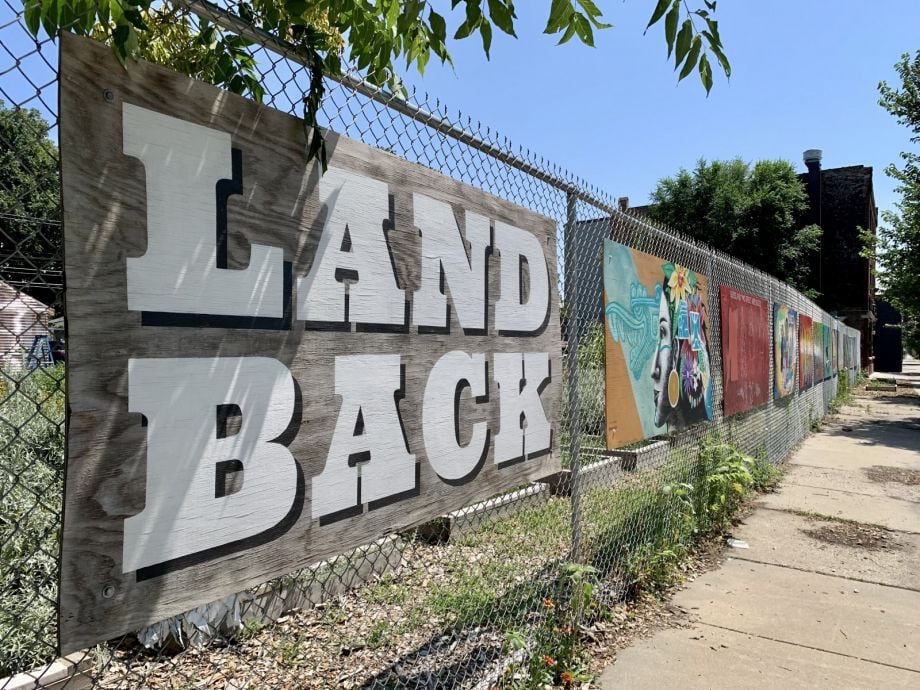Are You A Vanguard? Applications Now Open
(Photo by Joel Muniz / Unsplash)
This is your first of three free stories this month. Become a free or sustaining member to read unlimited articles, webinars and ebooks.
Become A MemberThe end of the year is a time of increased consumption for many people. It’s also when nonprofits and charities try to close the gaps in their fundraising goals. By this point, you’ve probably started to receive emails or letters about Giving Tuesday, the international day for giving back that began just over a decade ago.
Giving Tuesday’s creators figured that after spending money on stuff on Black Friday and Cyber Monday, people would also want to put their cash toward causes they care about.
There are a lot of movements and causes to consider donating to — so we’ve jotted down a handful of options you might want to move to the top of your giving list this season.
In what is now known as the San Francisco Bay Area, the Sogorea Te’ Land Trust invites residents to pay Shuumi, which means gift in the Ohlone language Chochenyo. It’s a voluntary contribution that non-Indigenous people living on the Confederated Villages of Lisjan’s territory can make to support the land trust’s work.

A series of Indigenous-inspired painting murals that line the chain link fencing surrounding the First Nations Garden Chicago, created by artist David Bernie of the Yankton Sioux Tribe, explores the interconnected struggles of BIPOC communities and their relationship to the city’s land. (Photo by Gabriel Pietrorazio)
Other Indigenous groups across the country have established similar land taxes. For example, the Wiyot tribe’s Honor Tax in Humboldt County, California, inspired the Shuumi Land Tax. There is also Real Rent Duwamish in Seattle, the Manna Hatta Fund in New York, the Honor Native Land Tax in Albuquerque and others. Do some research to find out how you can support Indigenous people in your region and transform your relationship to the land.
Visit the ‘Find Your News’ tool from the Institute for Nonprofit News (INN), where you can input topics you’re interested in and your region to find the newsroom that serves your community. As INN notes, “Nonprofit news is created for, supported by, and committed to the communities it serves.” Support independent journalism by donating. Your local journalists will appreciate it.
Of course, you can also consider giving to Next City’s 20th Anniversary fundraiser.
Even if you’re strapped for cash, you can still make a charitable donation worth thousands of dollars. Make a donation to RIP Medical Debt to make your money work harder: Every $100 donation relieves $10,000 in medical debt. Founded in 2014 by two former debt collections executives who envisioned a way to relieve medical debt — by using donations to buy large bundles of debt that is erased with no tax consequences to donors or recipients — the nonprofit has erased billions in medical debt around the country. This idea comes via Next City’s annual holiday gift guide, so be sure to check that out as well.
As them. reported in 2020, the gift-giving project TransSanta aims to support trans and nonbinary youth who are experiencing homelessness, in foster care, or “who otherwise don’t have Santas of their own.” This year’s campaign will support youth aged 24 and younger in the U.S. and Canada. Organizers plan to expand to other locations in the future, according to an Instagram post. Click this link and scroll down to view youth registries and give.
Mutual aid efforts have been around for a long time. According to The Cut, “mutual aid” comes from 19th-century anarchist Peter Kropotkin, who later outlined its meaning in his 1902 essay collection, Mutual Aid: A Factor of Evolution. Modern definitions describe mutual aid as informal networks to meet people’s material needs, from rent money to a meal.
The practice became more widely known when the COVID-19 pandemic hit in 2020. Since then, I’ve learned about many mutual aid efforts on social media. But there’s likely a mutual aid network in your community. A quick internet search will help you find them to contribute money or time. “People who are deeply committed to mutual aid think of it as a crucial, everyday practice, she said, not as a ‘program to pull off the shelf when shit gets bad,’” writes Jia Tolentino for The New Yorker.
Have you heard of the Chicago Future Fund? It’s a guaranteed income pilot program for formerly incarcerated individuals, started by Equity and Transformation (E.A.T.), a nonprofit, community-led organization founded by and for post-incarcerated people.
The Chicago Future Fund is “one of more than 100 guaranteed income programs that have been implemented across the United States and one of the first to explicitly target formerly incarcerated individuals,” according to E.A.T.’s November 2023 report. Contribute to E.A.T. to support its work.

(Photo by Unsplash+ / Getty Images)

Deonna Anderson is Next City's editorial director. An award-winning journalist, she has served as a senior editor at GreenBiz and worked with YES! Magazine, KLCC (an NPR affiliate station in Eugene, Oregon), The Lily, Atmos and other media outlets. Anderson is an alumna of the University of California, Davis and the Craig Newmark Graduate School of Journalism at CUNY. She lives in the Bay Area. She was also Next City's 2017-2018 Equitable Cities Reporting Fellow. Follow her on Twitter @iamDEONNA.
Follow Deonna .(JavaScript must be enabled to view this email address)

20th Anniversary Solutions of the Year magazine